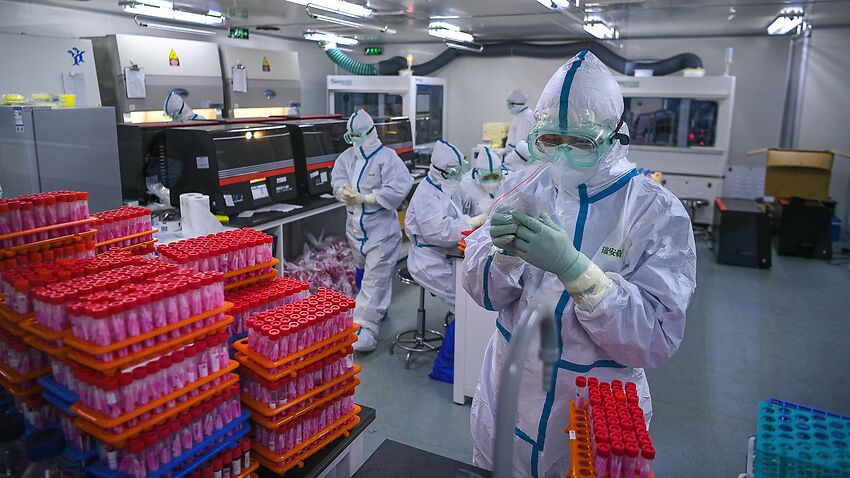Provincial governments across China are placing orders for experimental, domestically made coronavirus vaccines, though health officials have yet to say how well they work or how they may reach the country’s 1.4 billion people.
Developers are speeding up final testing, the Chinese foreign minister said during a UN meeting last week, as Britain approved emergency use of Pfizer’s vaccine candidate and providers scrambled to set up distribution.
Even without final approval, more than one million health care workers and others in China who are deemed at high risk of infection have received experimental vaccines under emergency use permission. There has been no word on possible side effects.
China’s fledgling pharmaceutical industry has at least five vaccines from four producers being tested in more than a dozen countries including Russia, Egypt and Mexico.
Health experts say even if they are successful, the certification process for the United States, Europe, Japan and other developed countries might be too complex for them to be used there.
However, China said it will ensure the products are affordable for developing countries.
One developer, China National Pharmaceutical Group, known as Sinopharm, said in November it applied for final market approval for use of its vaccine in China. Others have been approved for emergency use on people deemed at high risk of infection.
“We must be prepared for large-scale production,” said Vice Premier Sun Chunlan, who has overseen much of the country’s response, during a visit Wednesday to developers, according to the official Xinhua News Agency.
The government has yet to say how many people it plans to vaccinate. Sun said plans call for vaccinating border personnel and other high-risk populations this month.
Health experts question why China is using experimental vaccines on such a vast scale now that the outbreak is largely under control within its borders.







